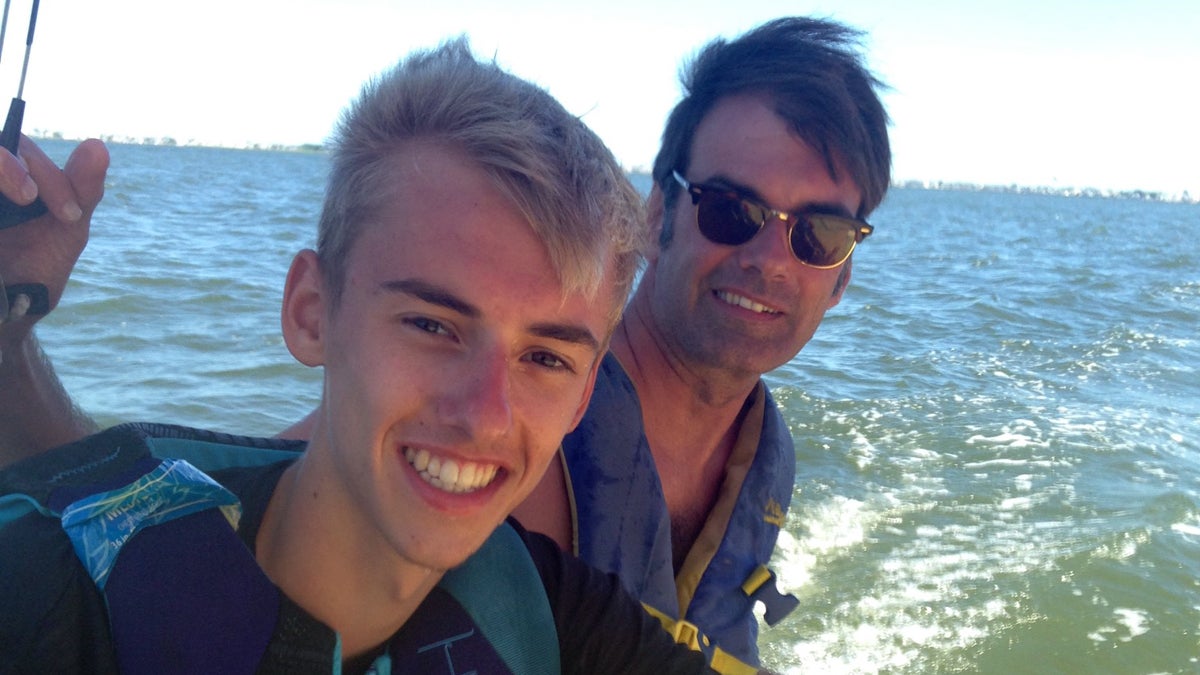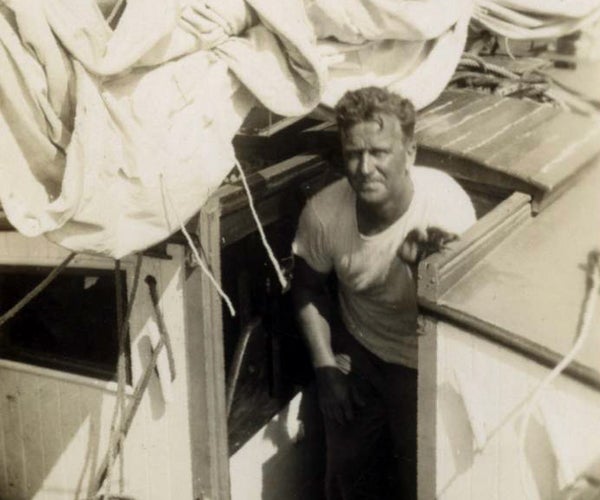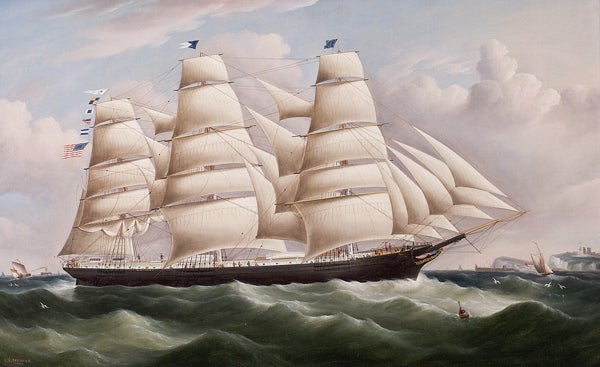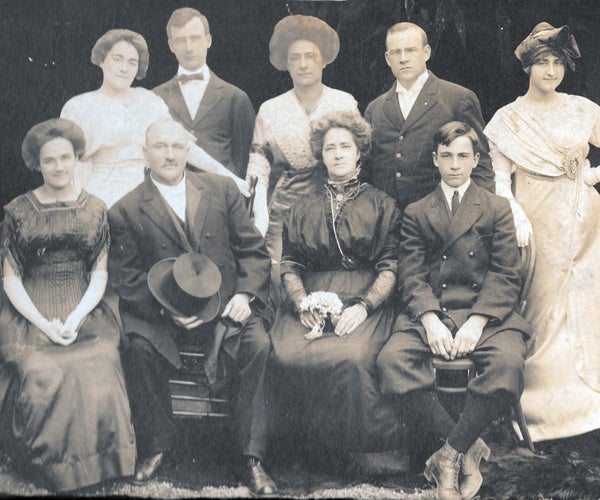Chasing family history and the tail end of summer on Little Egg Harbor Bay

The author and his son on their Hobie Cat
I turned 50 this year. Feeling so young, I towed my sailboat to the Jersey Shore for the family vacation. It’s a Hobie Cat, ostensibly a sports car for the water: light and speedy; I’ve overturned it more than once. I am thrilled my kids want to get back on.
We’re with my father, sisters and cousins on Long Beach Island. There’s a challenge. Its shoals are renowned for sinking three centuries of schooners and square-riggers alike.
A day later, it’s windy on Little Egg Harbor Bay. I cinch the jib-sail. We’re off.
My son hangs over the water, suspended by a trapeze wire attached to the mast. The boat rises into the air. He smiles. My daughter’s ready for her turn.
It’s memorable, this late summer before she turns 16, before his last year of high school. We haven’t sailed since childhood. Suddenly, they’re taller, taking more risks, like get on a Hobie Cat with their dad.

In unseaworthy skiffs, my father learned to sail this bay as a boy with his brothers. That was 70 years ago, when they visited my grandmother’s family, who began coming out to LBI when an uncle bought the Terrace yacht club after the ’29 crash.
Keeping tradition, Dad taught me to sail when I was my son’s age. In the most unlikely place — a broad manmade lake where the Kansas prairie winds never ceased to blow. Soon I moved back East, bought a boat, and taught my kids to sail.
The first sailor in the family, though, was John William Rose, my great-great grandfather. He was 17 when the Ontario brought him from London in 1871. He ended up in the funeral business. His descendants still crack mortician jokes, and they sail. There’s Eddie’s sloop; Bud’s scow, Aunt Tink’s sunfish, Uncle John’s 25-footer; Jo’s yacht; and now my yellow catamaran.

After our sail, I take my father down to the local museum. There’s an old anchor out front. I inquire after its origins.
“The Ontario, of course,” the caretaker says.
Turns out that five years after our ancestor arrived, “in a good breeze, dense fog, a high sea, and a rising tide,” the sailboat that brought him over, struck ground a few miles south of where my father and I stand, off Holgate near what was once Captain Thomas Bond’s Lifesaving Station.
140 years ago in the dead of night, 1876, the Ontario‘s 27 international crewmen were saved — only after one of the rescue boats overturned in the pounding surf. A few days later, salvagers retrieved its cargo — chalk, wool, and bottled ale.
A haunted synchronicity overtakes me.
This year marks the 100th anniversary of the death of this immigrant cabinetmaker-turned-undertaker whose sons, grandchildren, and great-grandchildren became funeral directors and would help thousands of families through the inevitable.
On March 16, 1916, just days after his 61st birthday, his wife laid him in a hand-carved Australian mahogany casket at the home in Bridesburg that’s still in business. Back then, the ferry ride across the Delaware to the cemetery cost a whopping 3 bucks. The price of an ice cream cone today on LBI.

Back at the beach-house, I tell my son and cousin the tale of our ancestor, his month-long sea voyage, the startup funeral business, how his ship sank off the beach, in 25 feet of water.
“We could dive for it,” cousin Eddie says.
We’re leaving for home the next day. My son smiles and nods.
“Next year,” I say. “How about next year.”
WHYY is your source for fact-based, in-depth journalism and information. As a nonprofit organization, we rely on financial support from readers like you. Please give today.




